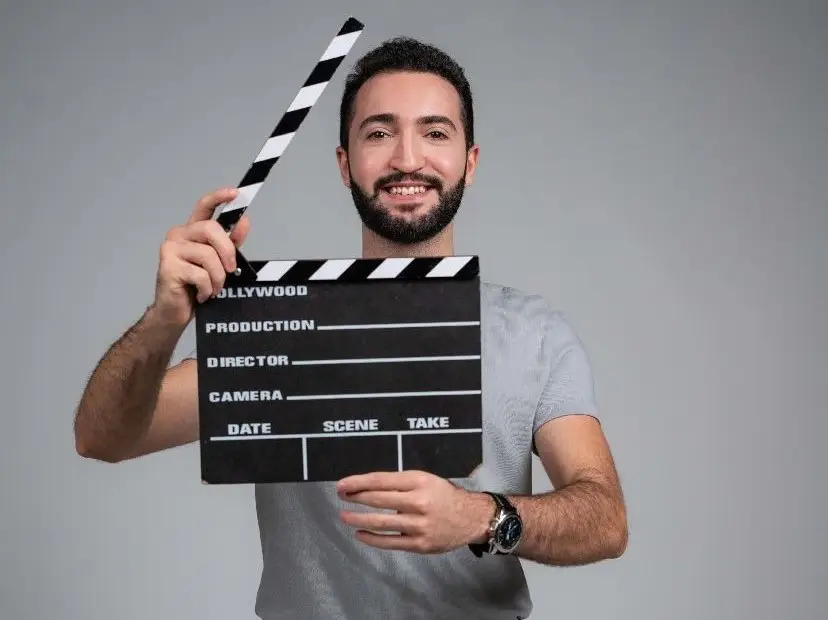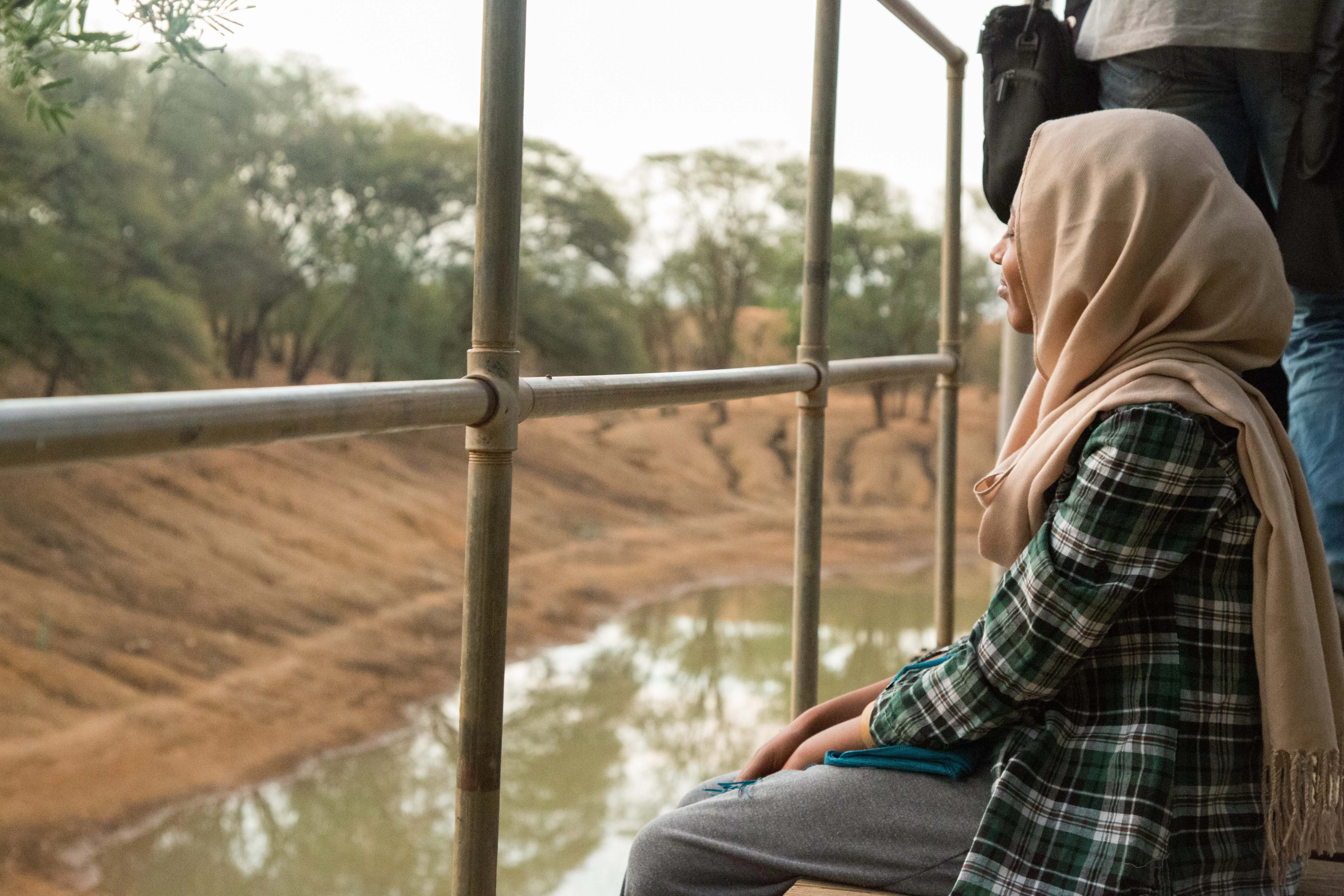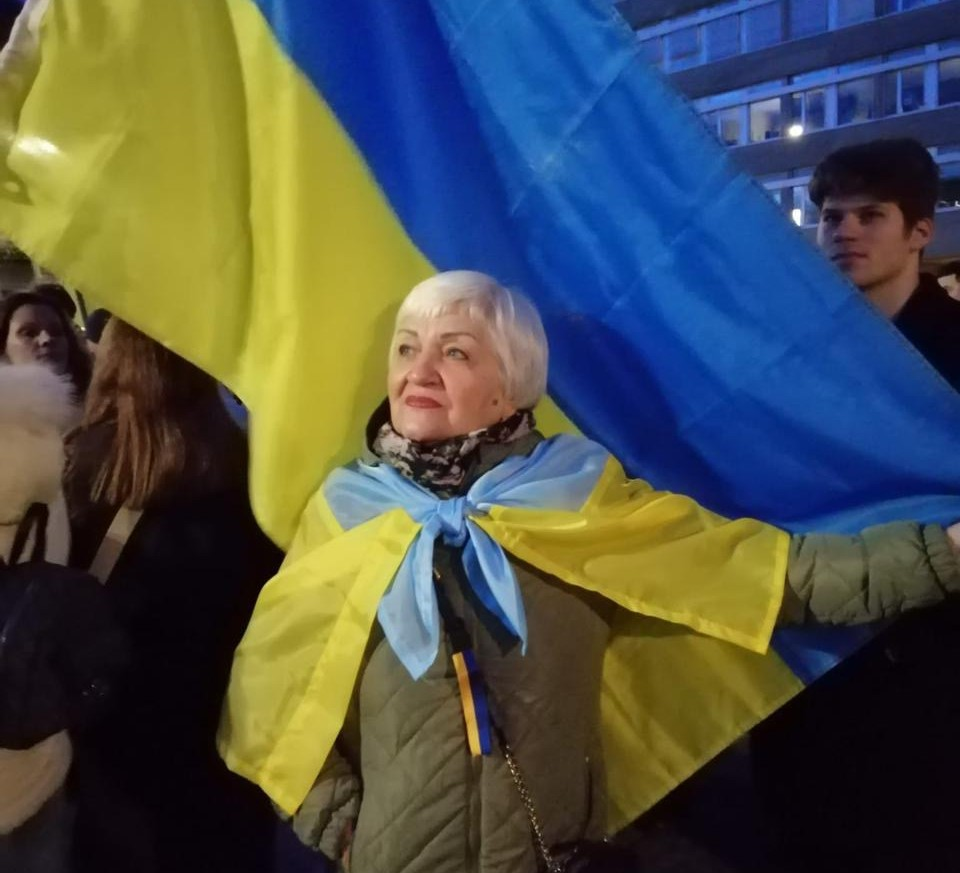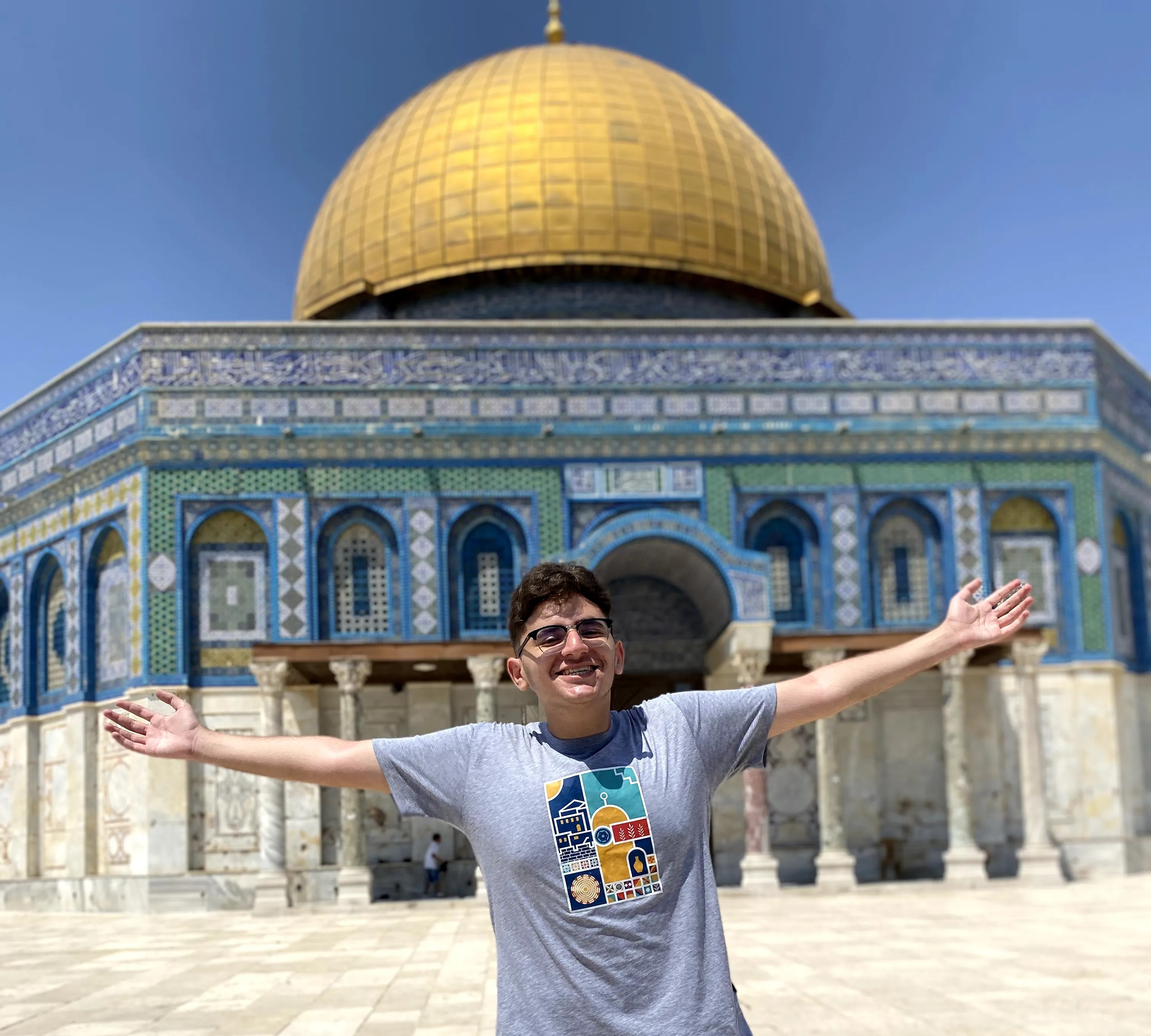
My childhood ended the day we left our home in Syria because of the war. The day I left my bedroom, my toys, the space where I took my first steps and spoke my first words, the first house my father ever owned, the house where I shared my childhood memories with my siblings, that is the exact day when I knew that I left my inner child, the little Mounir, who vanished just like the house did.
I was born into a Syrian family of 7 with countless uncles, aunts, and grandchildren. My dad was a very hard-working man who had been working ever since he was a child to support his family living in extreme poverty. Before the war started in 2011, we were living the best life we knew. I remember the weekly gatherings that brought together the whole family at my grandparents’ house.
There was also another reality that left an everlasting mark on my soul. I understand now that embracing the truth will ultimately set me free, and that's exactly what I intend to do. My father, even before the war began, was a source of pain and fear in my life. His anger consumed him, and he took it out on me with his rage. The onset of the war only intensified our suffering, as the man I called "father" grew colder and built a wall between himself and me. His rage created an atmosphere of abuse within my home, further fueling my stubbornness, thereby perpetuating the vicious cycle.
I wasn’t the fit and strong Mounir as a child. I was bullied and abused continuously at school, and I frequently changed schools because of this. Of course, switching schools never stopped the bullying cycle. I was introduced to different types of bullies in different schools. Having overprotective parents made me weak both physically and mentally.
It aches my heart to remember my childhood. Because every time I remember, my mind can only focus on the negative memories. As a child, I saw things I shouldn't have seen. I was taught and introduced to stuff that no child my age should have been taught. Sometimes I wish I could wipe out a lot of the memories from my childhood. I don't like remembering my childhood.
I always found refuge and safety in my childhood house, particularly in the laundry room. Despite it being too tiny and dirty, it always smelled clean like new washed laundry. And to me, it was the best place to hide and run away from the harsh reality I was living in. My mom used to create beautiful pieces out of wool and I used to take pieces of those and lay on them. Despite the room’s tiny space, it always left room for the sunlight to come in and brush my body. Lying there in my world, I thought that was the harshest thing a child could ever experience. And suddenly the chapter that was supposed to be the toughest, has once again become more traumatic with the start of the war.
The war started when I was at the tail end of 11. I wasn’t aware of what was going on. I was a child who had never heard the sound of guns and bombs before the war, I couldn’t make sense of the world around me with people dying in the streets and just under our house. I couldn’t believe what I had to see as a child. Going home after school was a mental challenge in itself. I had to get past a corpse yard; corpses of people who were alive just a few hours before my passage, and people who had fathers, mothers, and children. At the time, my mom was pregnant. We were afraid that at any moment she would give birth in the middle of the warzone without having a clue of how to respond.
At some point, our town in the countryside of Damascus, Harasta, was sieged from all sides preventing medications and food from passing. We weren’t allowed to leave our house.
The sounds of bombs and gunfire that weren’t part of my childhood have now become the norm for this new one. Our house had a lot of windows, and we used to close them to be as far away as possible from danger. I remember the whole family hiding in the bathroom while the whole building was shaking. We heard stories of rape, executions, and of buildings being destroyed with people stuck inside them. Not only did the war rob me of my childhood but also my education. My siblings and I had to stop going to school so we wouldn’t get blown to dust or get delivered to my parents in body bags with holes in our bodies.
On one of those gloomy and dark days, we were suddenly informed that we had only three hours to evacuate the city before it was wiped off the face of the earth. Our parents asked us to pack our most important belongings into our school bags that had been empty for so long. While my siblings rushed to gather their clothes and underwear, I chose to grab the teddy bear that I love so much and keep it with me wherever I went. To this day, this teddy bear is the only thing that was left from my childhood. I take it wherever I go. I named him HOPE…
For mom, it wasn’t her toy that she was worried about. It was the big box that contained priceless pictures of our childhood, the day I was born, and the day my parents got married. To her, that box of pictures was a treasure box that was more precious than all the gold and jewellery that she had hid in different spots of our house. She insisted on taking the pictures, but it was not possible at all, so she had to hide them in the attic in the hope of saving them later on.
That’s where the journey of displacement started. 10 days after moving to our grandparents’ house, we received a call from relatives warning us not to go back because our house had been damaged. A part of the entire building had been bombed, reducing it to ashes and dust, along with all the precious memories of my childhood. We moved out of our home thinking that we would be back soon, but little did we know that it would be the last time we set foot in and out of it. Just imagine the same pillow you sleep on every single day is being changed more than once every single week. This was our reality as we moved so many houses taking refuge at our aunts and uncles.
Finally, we were able to find a shelter in the city of Sham. However, this shelter didn’t offer all that we hoped to find. Many of the struggles we faced in our hometown were still persistent. Foods were given out in rations, there was no electricity, no clean water, and no space to express the pain.
I was only 12 years old when I would stand in line for more than 6 hours to get a piece of bread for the whole family.
Have you ever had a horrifying experience where you had to sleep with a dozen other people in a confined space? Well, that was our reality for a whole year and a half. We rented a house and opened it to our family members who were also affected by the war, offering them a place to stay whenever they needed it. So many days, we found ourselves crammed together under one roof, lying on the floor with mattresses as our only comfort. There was no electricity, and more than 20 people had to endure these conditions. It was incredibly challenging and emotionally overwhelming for all of us.
Remember the big family gathering we used to have every week? They are now distant memories of the past that were burned with our houses because of the ravaging flames of the war. Because of the war, the family was shattered. No meetings. No gatherings. No uncles, aunts, or grandchildren are in the same room anymore.
Most of the men in the family fled from Syria escaping military conscription. Every one of them risked and sailed the waves of the sea hoping they would take them to a better place. Now, my family has a presence not just in Syria but in the whole world too. I have family members in Canada, Germany, Turkey, France, the UK, and other countries.
After escaping the war in Syria and becoming a refugee in Lebanon, I had imagined a bright new start away from war only to be welcomed by my internal war which came in the form of PTSD. It accompanied me for the first 6 months of my life in Lebanon. I never understood what was happening to my own body. It was as if a self-destruct sequence had been initiated. I never understood why I was crying for so long or the feelings of depression that never left me alone. My heart was heavy. My chest became numb. I had ongoing suicidal thoughts. I called the suicide hotline and asked for help. I was a corpse lying on the floor waiting for someone to revive me.
My dad had to borrow a lot of money to be able to survive in Lebanon. Everyone was depressed. The empire that my dad had once built has now been reduced to rubble, and we had to rebuild from scratch. My dad became evmore violent. I didn’t want my siblings to go through what I was going through, so I played the role of the father to them and the role of the saviour for the whole family. I did this at my own expense, and this would come back to bite as my mental struggles got worse before they could get better. I later understood I am not a father to my siblings and I should play the role of a brother and a son. I forgave my dad. I understood why he wasn’t a good dad because I was able to see what he was going through. Now I understand why he did all this. I understand all the pressure, and how being poor is so hard.
I hit rock bottom, and my sinking ship couldn’t sink any deeper than that. I allowed myself to cry, to feel depressed, but I knew at some point I needed to rise. There’s no point in staying down, I knew I needed to rise again just like the action and its opposite reaction. I knew inside me I was a fighter. There was a voice inside me that wouldn’t allow me to stay down for so long. I knew the importance of grief, that's why I allowed myself to express my anger and sadness.
In 2015, I was reborn. Unlike my older siblings, I demolished my entire Syrian identity which helped my survival and integration in Lebanon. My subconscious system felt the urge to change and entirely adapt to feel accepted and welcomed. I adapted so quickly in Lebanon. For the upcoming 3 years, I invested so much in myself until I reached a point I was able to call Lebanon my home. I started questioning life and its purpose at the age of 15. Those years were an opportunity for me to discover who I am and who I want to become in this life. At that time, I mapped out my entire life. I knew who I wanted to become in my career and the message I wanted to deliver to the world.
I became more active than I had ever been in my life. From joining 5 different NGOs back in 2015 simultaneously to attending different workshops and training to receiving more than 18 technical diplomas in a couple of years. In one of the NGOs I was volunteering, we were able to raise $10,000 for a family in need through a video I created. This gave me hope because I saw the impact of my work. Remember the little Mounir who was bullied in different schools? I am lucky it had a positive impact on me in the long term and made me an anti-bullying activist. The teenager Mounir was able to create three anti-bullying campaigns which were screened to more than 1,200 children in schools. I used to feel guilty because I was one of those lucky who survived the war. Being in direct touch with refugees and people in need helped me and brought a purpose to me.
I realised there’s so much that life expects from me, to help and inspire others, to give them voices. I was born to be there for others. My life has to mean something to others.I wanted to become a Film Director who can inspire others and bring more humanity into the people of the world through the films I was aspiring to create. I wanted to make people recover from their traumas. I discovered a new passion for me which is photography. I am not sure if photography was a means to create more pictures and memories and replace them with the old pictures we had lost in the war. Or maybe, it was to show Mom there’s always hope despite the loss of the things she cared about dearly, our pictures. I was sad when I took pictures of birthday kids because, with every click, I was remembering my childhood pictures that have been mostly burnt or the childhood that was cut short because of the war. To my delight, the pieces were finally falling into place for me. However, the wave of positivity didn’t end here, for it had a ripple effect in other aspects.
In 2018, my dad visited Syria. Little did we know that his visit would bring us pieces back from our childhood. Yes, our house was partially gone, but thankfully it wasn’t able to take away parts that remind us of our origin, our childhood, and our happy moments with it. My dad was able to find some of our pictures that were hidden in the attic. These were the happiest moments! Now, I always carry three of those pictures with me. My uncle also went back to rebuild my grandparents’ house. To me, this action held a beautiful and poetic meaning. He was going to rebuild the house and even make it better than before from the little pieces that were left of it. The concept of gathering small pieces to make a big whole and making something beautiful from something ugly and painful was very important to me, especially during my healing journey.
In one of the public speaking classes back in university, I had the assignment to present myself. All that I remember talking about were the achievements I was able to accomplish in Lebanon. I remember the teacher posing a question that left me speechless for so long. He asked: “Why are you trying to mask all the sadness of your childhood and your past traumas behind your current achievements? Talk about your traumas. Talk about your real story. Show us the real Mounir”. It took me four months of self-reflection and years of healing until I was able to stand there in front of my teacher and everyone and share my struggles and traumas.
I suffered from detachment trauma since childhood, and this has led me to abandon activities I once enjoyed. I believed that by focusing on personal growth, I could mask the void within me. I genuinely thought my inner child was lost and left behind in Syria.
Against societal disapproval, I embraced classical ballet in Lebanon, along with playing the violin and singing opera. I never knew how it feels to be present completely at the moment, to be ALIVE, to go with the flow, until I touched the Arts and made them a part of me and of my identity. Through these art forms, I discovered true presence, joy, and satisfaction. Art became my refuge, allowing me to escape and fully immerse myself in the moment. It awakened my inner child and brought me happiness. I felt like running through my veins again “عم بنبض بالحياة”
For the past eight years, I have tried to block and erase my childhood memories, but I realized they would always resurface. It’s as if I am putting a plaster on the wound without trying to heal it. Instead of simply suppressing them, I knew I had to heal and create something meaningful from my pain.
I started therapy two years ago. This healing journey was and still is hardly beautiful. It was a journey to a better and happier self. I needed to go back to the parts of me that were broken for so long. Ignoring my feelings and traumas, ate me alive. I felt numbness in my chest for so long. I was a zombie walking and surviving every single day. It’s as if my heart wasn’t beating for me.
Because of the pain I was experiencing, I didn’t want others to feel pain. I hugged my family and friends and wanted to take their pain away. After therapy, I understood every person has to deal with their sadness but I am always there for them. I give them love and care but don’t take their sadness with me. I learned that I can’t change anyone or think for anyone but I can work on myself because I am responsible for myself and my relationships with others.
Looking back, I reflected on how I could have survived all this. As a man from an Arab culture, we are taught not to cry, not to express our pain, and our struggles, and to keep it to ourselves. For so long, I tried to change. I tried to become a person that Lebanese society would accept. I used to deepen my connection with my inner self. Because of the survival guilt, I didn’t take care of my outer appearance. I became more dedicated to discovering what I have on the inside. I had only 1 black and 1 white T-shirt and 3 pairs of pants. It’s not by pressuring ourselves to become who we are not that we can find happiness.
From my experience, it’s through expressing my pain to the people around me, crying, speaking up, admitting these traumas to myself, and accepting it all as it is, that I found peace within me, real and pure peace. I was able to let go of the numbness. Today, I am open to healing, love, and cures. I am open to asking for help. Acceptance freed and liberated me from my internal war. I am happy, healthy, and alive. I am okay. I am healing. I accepted it.
Accepting myself and my pain brought me inner peace and a newfound sense of lightness. The internal conflicts and storms within me transformed into a bright sun and clear sky. It was a treasure; a feeling of serenity that I vowed to protect.
When asked about my origins, I often struggle to find the right words. I've faced an identity crisis, torn between Syria, Lebanon, and now Dubai. It's been a journey of conflicting loyalties, but after much soul-searching, I proudly proclaim myself as Syrian by birth and Lebanese by upbringing.
Reflecting on my past, I realize it's a sad story, a challenging childhood. However, I've chosen not to dwell on the darkness but to use my pain as a catalyst for personal growth. My traumas have shaped me into a resilient survivor. I refuse to be defined by the past; instead, I embrace the opportunity to become a better person and make a positive impact on the world. I don't see myself as a victim anymore; I am a survivor, a fighter. Despite everything, I feel blessed and grateful.
Sometimes, I imagine a life without wars, poverty, bullying, immigration, rape, traumas, sexual harassment, and domestic violence. I understand that these experiences have shaped who I am today, but I still wish for everyone to have a normal life. If I had the chance to take a pill and live without those hardships, I would take it. Nevertheless, I'm thankful I've turned something ugly into something beautiful. I don't want to pity myself or play the victim. At some point, we’ll ask ourselves, "Okay, what now?" Self-awareness is crucial to moving forward and not wasting time. For others, I hope humans find the strength to speak up and acknowledge their own traumas. It's a powerful way to heal and find peace in acceptance. I remind myself that it's okay, you’re safe now, Mounir.
As a film director, I hope to create films that delve into our humanity and reconnect people with their innate goodness. I want to help the people of the world become more human. I love life deeply, and I have a profound love for humanity. While we can't change others, we can influence and inspire them. I'm here to inspire people to embrace their emotions and rediscover their true human nature. We are people, but we've forgotten how to be truly human. Let's help each other remember. "إنسان يتعمق ببشريتو وإنسانيتو أكثر ويرجع للجوهر البشري الحقيقي"
The journey of recovery is a blessing from God. It may not always be beautiful, but it's a journey worth taking; a hardly beautiful journey.


